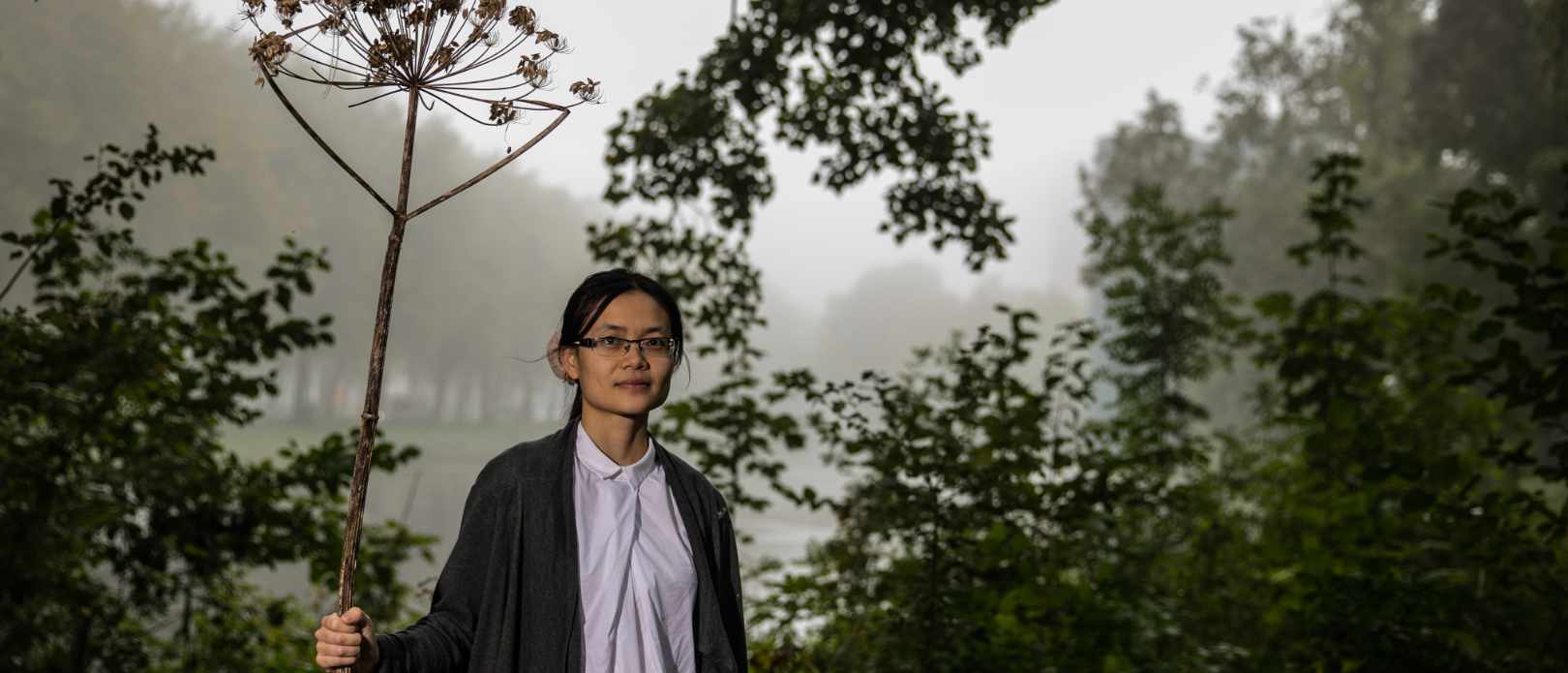RESEARCH PROFILES
Hungry for change

Amanda Wood is one of the leaders of the centre's new research theme focusing on sustainable food systems.
Centre researcher Amanda Wood explains why food is a crucial but very challenging place to start a global sustainability transformation
- In 2020, the centre introduced new research themes to reflect a shift in the centre’s research focus
- One of the new theme leaders are Amanda Wood who will co-lead the new Food for resilience theme
- Her research expolores how food policy, governance and multi-stakeholder collaborations can support healthy and sustainable food systems
If the way to someone’s heart is through the stomach, the same might apply when it comes to showing some love for our planet. Food is one of the strongest levers for optimizing human health and environmental sustainability. This means that if we get it right on food, we get it right for the entire planet.
But to succeed, major transformations are needed in how we produce, consume and deal with waste. So with no blueprint for success and a whole lot of future uncertainty, how do we get there?
We ask Amanda Wood, co-leader of the centre’s theme Food for resilience. She tells us about her work in the Nordics, envisioning the futures we want, and how reaching them means it's time to get experimenting.
Amanda, your work tries to understand how we can concretely create sustainable food systems. How is food important for a sustainable future?
Food systems have such a huge impact on sustainable development as a whole, but right now they're not moving us in the right direction in many ways. They are the single largest driver of environmental change, and poor diets are one of the leading causes of poor health and mortality around the world.
Not only can changes to our food systems have enormous health and environmental benefits, food touches almost all aspects of sustainability. A sustainable future food system should also enhance equity of all those involved in food value chains - from food producers to those stocking supermarket shelves.
These kinds of aspects are often left out of the discussion, but when you step out and work with stakeholders you see how fundamental the social side of sustainability is. It’s the first thing they talk about; food should be affordable for all, livelihoods equitable, and farmers supported and rewarded for their hard work.
We won't reach the goal of sustainable food systems without making sure that they support thriving individuals, communities and societies.
You started working at the SRC as part of the EAT-Lancet Commission team. How did this bring you to what you’re doing now?
The EAT-Lancet report proposed food system targets on the global scale and identified broad areas of action to support and speed up food system transformation. But as we indicated in the report, and as we all know, global analysis must be put in local context to have impact.
Being based in the Nordics it was natural for me to investigate how to make the report meaningful in the Nordic context. It’s been a really rewarding experience to see this and other high-level science trickle down from very theoretical pieces, to see it take the next step to a more tangible impact.
You have been working with stakeholders from across the board. Why is this so important?
It’s incredibly important to have a solid evidence base, but science can only get us so far. For transformative change to happen we need to understand that food is a normative issue, with so many different values and preferences at play in a food system.
Hearing a stakeholder perspective - from policymakers, civil society organisations to youth groups - helps us understand how we can get broader society excited about and involved in food systems transformation.
It’s also exciting to see more and more projects with strong stakeholder engagement underway, such as the Mistra Food Futures programme that involves several of us at SRC. This project seeks to identify different ways in which Swedish food systems can become more sustainable and make sure all relevant stakeholders can contribute to the implementation of their desired changes.
What are the main challenges of this kind of transdisciplinary work?
Stakeholder engagement needs to be meaningful and not just a one way conversation. But this means many time-consuming tasks: organising meetings and events, nurturing long-term networks, translating complex work for a non-scientific audience. It’s a fulltime job on its own, and makes it difficult to write the scientific articles that are still used to measure researcher success. Stakeholders face a similar time crunch. This type of engagement is not always part of their job descriptions, meaning they are often contributing on top of all of their other duties.
It’s motivating and inspirational to interact with diverse actors across the food system, and I learn so much from these different groups. It's also rewarding when you see something you produce as a researcher be taken up in the real world.
The future brings a lot of uncertainty. How do you deal with this in your work?
There is a lot of uncertainty when it comes to how food systems will evolve. There are things we can try to estimate, like how climate change will impact the crops we grow. But we’ll never be able to predict human agency.
Will a major food business adopt sustainability at its core and fundamentally change the industry? Will a start up completely change the landscape of food systems in a certain place? Will a worldwide pandemic or food safety scare change people's behaviors? These kinds of things we just don't know.
But we can’t just throw our hands up in the air and say it's too challenging. We need to use the tools around us to reduce uncertainty as much as possible, and we must also prepare for the many different directions that food systems could take in the future.
You’ve just been appointed one of the leaders of the food for resilience research theme. Congratulations! What are you most excited about?
Thank you! So many things are exciting, that’s a challenging question! But a few things spring to mind.
First, the food researchers at the SRC have such a large network of non-academic partners working in every part of the food system. It’s really exciting to see how through transdisciplinary ways of working we can harness the power of these stakeholders to tackle and shape real world food systems challenges.
We also have so much diversity in our research expertise, and that’s key for working with food systems. Tackling the complex, multi-faceted challenges of food systems cannot be done by one person, or even one discipline. We need to put our heads together to solve these grand challenges, and that’s exactly what this theme gives us the space to do.
Looking to the future of food systems research, what do you see to be the most important direction?
For food system transformation, there is no blueprint because we’re facing challenges we’ve never seen before. The future is action and experimentation! We have a vast body of research that is defining our challenges and debating the problems. But we need to look beyond this and focus on what we want our food systems to look like and how we are going to get there.
It will be exciting to move to the next step where businesses, policymakers and trailblazers are taking action. As researchers we will then be able to see how these actions fit into larger pathways of change and develop a better understanding of what works and what doesn’t.









